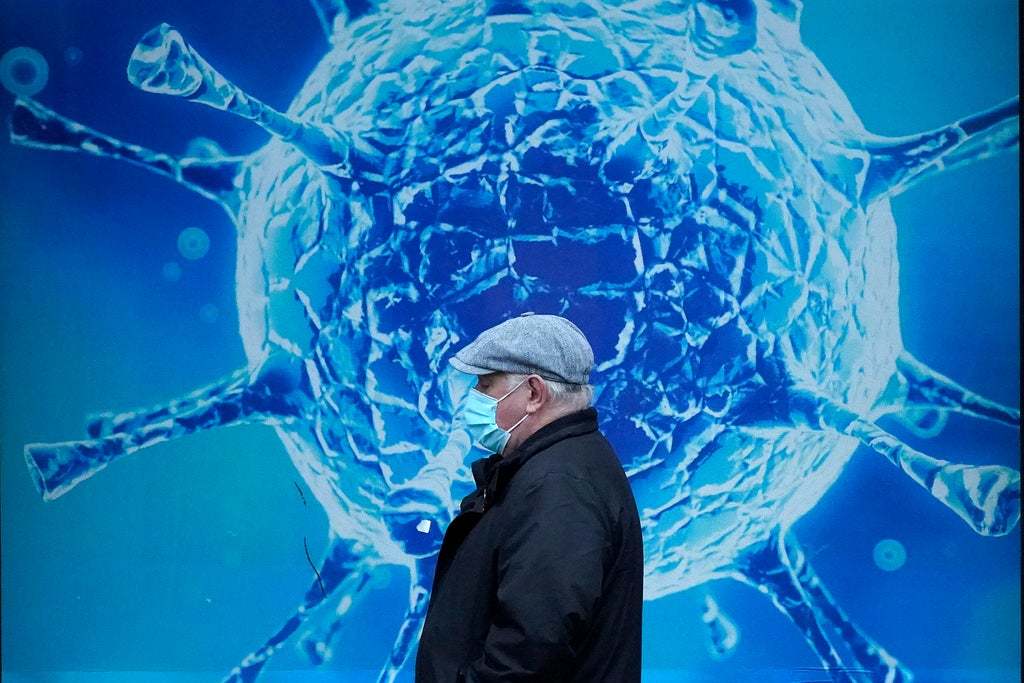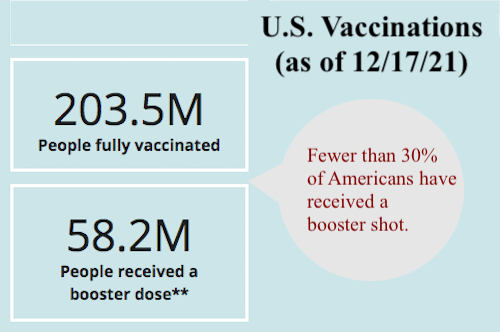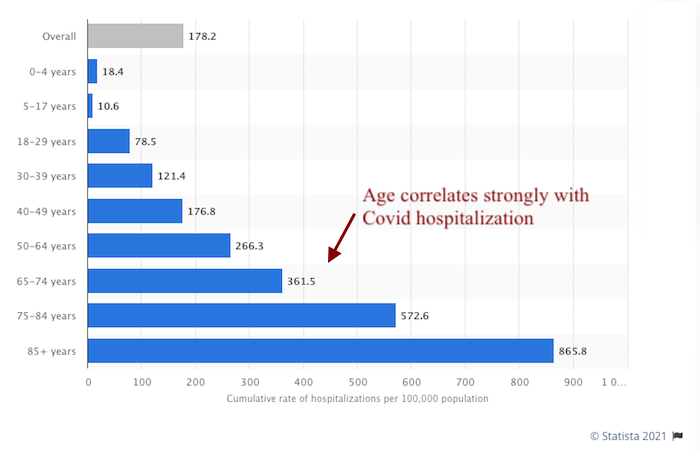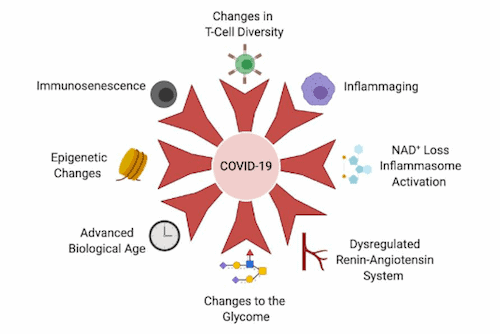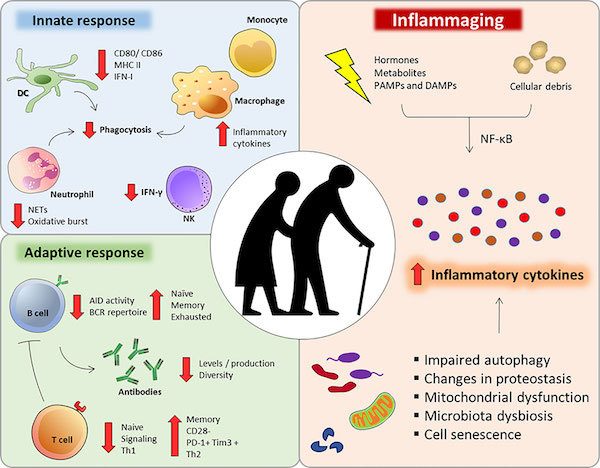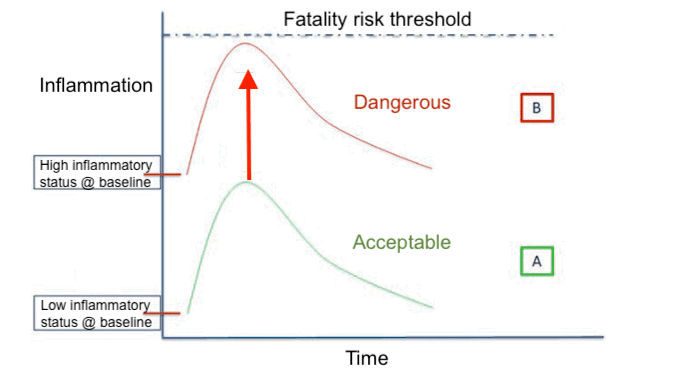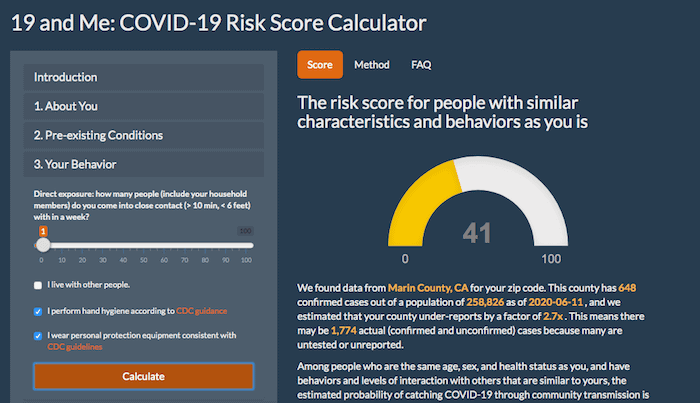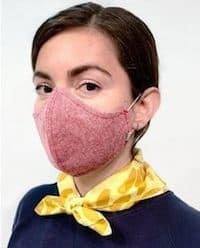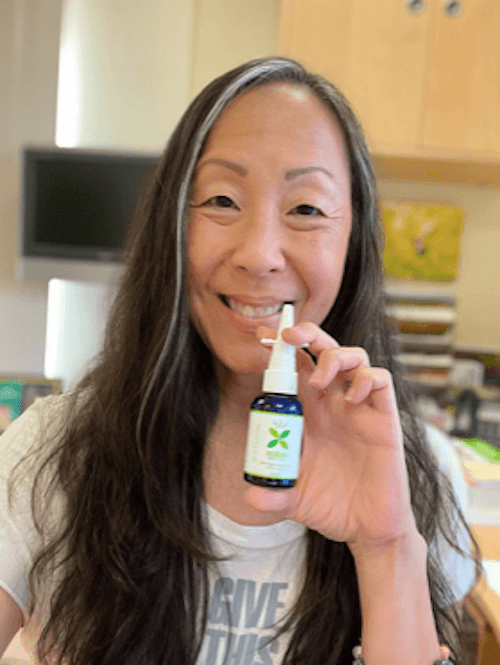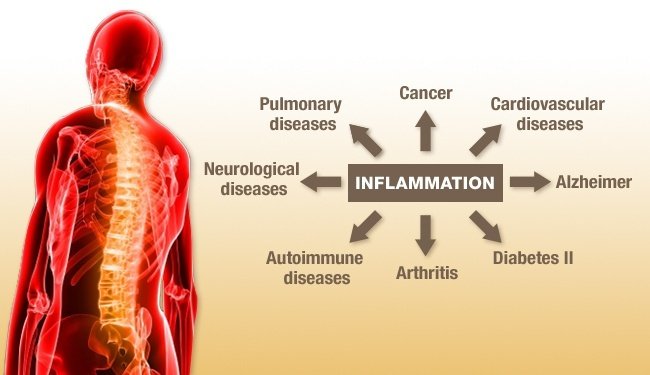How To Protect Yourself from the Omicron Variant

You need to protect yourself from the Omicron variant of COVID-19, especially if you’re not vaccinated, did not get your booster shot, are middle aged or older, and/or are overweight. Here’s what’s at risk and what you can do.
It does feel strange to be writing about how to protect yourself from the Omicron variant that’s taking the world by storm instead of something uplifting during this Holiday Season.
Along with the scientific community and governments worldwide, I’m concerned that the SARS-CoV-2 variant called Omicron threatens to turn what should be a joyful time into one of anxious anticipation about another wave of Covid. We again face the dilemma of how to modify our lives due to the Omicon threat.
Yes, just as we began to adjust to the second disruptive variant, Delta, we now have Omicron. You may have heard that it’s more contagious, but less virulent than any other Covid variant, but that’s only true for the vaccinated, and/or for those who got Covid and survived. For those who remain unvaccinated and never got Covid, the virulence of Omicron is similar to the original SARS-Cov-2, our decidedly unfriendly protein-spiked virus.
I encourage you to take this threat seriously, and I write this post to help guide you to understand what’s afoot, and to help protect you from the Omicron variant.
Here’s what’s covered:
- What’s up with Omicron (watch the video)
- How vulnerable are you to Omicron?
- What to do to protect yourself from the Omicron variant
- Your takeaway
Let’s dig in…
What’s Up With Omicron?
Currently, here’s the bottom line on the Omicron variant:
- Governments around the world are desperately trying to deploy Covid booster shots to millions of people to bolster their protection against this more transmissible variant.
- According to the CDC, in the U.S. only 52.8 million people got a booster shot, currently the best protection against Omicron, they say. Preliminary studies have found that omicron reduces the efficacy of two-dose Covid vaccines, but a booster shot can restore a significant level of protection.
- It’s been less than a month since the new, heavily mutated Omicron Covid strain was detected and designated a “variant of concern” by the World Health Organization. It’s now spreading rapidly. For example, in New York City the percentage of people testing positive for COVID-19 doubled over three days.
Spend 9.21 minutes listening to Judy Woodward of the PBS Newshour Omicron update:
These are video highlights:
♦ The USA is experiencing a big spike in Covid cases with a daily average of $121,000 infections. That’s a 40% rise in the last 2 weeks.
♦ An average of 1,300 people are dying everyday, and that’s expected to increase as Omicron spreads.
♦ A mask mandate is now in effect in New York, and you can expect them to be occurring in many more cities as omicron spreads.
♦ People who are already vaccinated are also getting infected. A poignant example of this is Cornell University, where. 97% of students are vaccinated and yet 1,100 students tested positive last week. (How many have not gotten the booster shoot was not reported.) But Cornell is not alone as several other universities are dealing with Covid spikes, as well as major professional sports leagues, such as the NBA the NHL and the NFL, with various games being canceled and players infected.
♦ Tourist restrictions are beginning.
♦ Experts are warning that Omicron is likely to become a dominant strain in the United states.
In the above video, The PBS Newshour interviewed Dr Eric Topol, founder and director of the Scripps Research Translational Institute, who made the following comments:
♦ The Moderna and Pfizer vaccines are safer than Johnson & Johnson’s and are recommended.
♦ It’s unquestionable that we are heading into a bad winter as far as the virus is concerned. The Omicron strain is doubling just over two days which has not been observed before.
♦ Infections from omicron are tending to be more mild and prior strains, but that’s not related to the virus (there’s no evidence that virus itself is milder), but because there’s sufficient immunity built up through vaccinations, and by people who have gotten Covid, survived it, and thereby developed antibodies to the virus.
♦ What happened to Cornell with 97% of the students vaccinating will be mirrored by the rest of the country, and the world.
♦ Given that the United States is behind most of the industrialized world in vaccination rates, ranked a paltry 65th in the world, people need to double down on wearing masks and social distancing when indoors (and I might add to improve your immunity principally by reducing baseline inflammation rate, as I explain below).
♦ The danger of Omicron is not being over-hyped. Millions of people will be infected and although hopefully most will not get very sick, many will wind up in the hospital and die. And those who recover may face the health dilemmas of the “long haulers“.
How Vulnerable Are You To Omicron?
Generally speaking, the most vulnerable to getting infected with the Omicron variant are:
- The unvaccinated
- Older folks
- People who are overweight
If any of that applies to you or people you care about, get focused and read on.
Among the many diseases described by the CDC that makes a person vulnerable to Covid (such as heart disease, diabetes, lung disease and hypertension), I want to address the most prevalent two — age and fat.
Just over 34% of the US population is aged 50 and over, and their numbers are rising rapidly with the aging of the baby-boom generation [1]. And as you’ll soon see from the statistics I list below, people across the globe are getting fatter.
Other underlying medical conditions can also make you more likely to get severely ill with Covid, such as heart and lung diseases, diabetes and hypertension. See this list from the CDC if relevant to your situation.
Age is a Covid/Omicron vulnerability
The number one vulnerability to Covid is age. The older you are, the more vulnerable you are, simply because our immune systems become less resilient to pathogens like Covid, and consequently can either under or over react to infection.
Older adults are more likely to get very sick from Covid and might then need hospitalization, intensive care, a ventilator to help them breathe, or they might even die. The risk increases for people in their 50s and increases in 60s, 70s, and 80s. People 85 and older are the most likely to get very sick.
Cumulative rate of laboratory-confirmed COVID-19-associated hospitalizations in the United States
Anti-aging geneticist, Dr. David Sinclair, and two of his associates, wrote a research paper about why Covid disproportionately affects older people. They write that the ability to control viral load is one of the best predictors of whether a person will have mild or severe Covid symptoms.
For the immune system to effectively suppress then eliminate SARS-CoV-2 (the virus that creates the Covid disease), it must perform four main tasks: (1) recognize, (2) alert, (3) destroy and (4) clear. Each of these mechanisms are known to be dysfunctional and increasingly heterogeneous (diverse/dissimilar) in older people.
As we age, our immune system changes in two major ways:
- One is a gradual decline in immune function called immunosenescence, which hampers pathogen recognition, alert signaling and clearance by the immune system. (This is not to be confused with cellular senescence, an aging-related phenomenon whereby old or dysfunctional cells arrest their cell cycle and can become epigenetically locked into a pro-inflammatory state in which they secrete inflammatory cytokines and chemokines.)
- The other classic immune system change during aging is a chronic increase in systemic inflammation called inflammaging, which arises from an overactive, yet ineffective alert system.
For more detail about how aging is perhaps the most significant factor influencing COVID-19 health outcomes, read Dr. Sinclair’s paper.
Excess body weight is a Covid/Omicron vulnerability
The people of the world are getting fatter.
Consider this significant sample:
- The percent of overweight American adults aged 20, including obesity: 73.6% [2].
- In the European Union, 53% are overweight, 36% pre-obese and 17% obese. [3]
- In China, 50.7% of adults are overweight, including the obese [4]
Being overweight, particularly obese, makes you susceptible to a litany of diseases, such as cardiovascular disease, adult-onset diabetes, cancer and metabolic syndrome. But pertinent to Covid, scientists find that the coronavirus attacks fat tissue. This research may explain why overweight and obese people have been at higher risk of severe illness and death from Covid, and now — especially for the unvaccinated — are particularly vulnerable as we face the most contagious strain yet, Omicron.
Body fat used to be thought of as inert, just hanging around as a form of energy storage to be drawn from in case of famine. Scientists now realize that fat tissue is biologically active, producing hormones and immune-system proteins that act on other cells, promoting a state of nagging low-grade inflammation even when there is no infection.
Inflammation is the body’s response to a pathogen invader, like a virus, and sometimes this inflammatory response can be so vigorous that it is more harmful than the infection that triggered it. The New York Times quotes Dr. Tracey McLaughlin from the Stanford University School of Medicine:
The more fat mass, and in particular visceral fat mass, the worse your inflammatory response
If you are overweight or obese and are lackadaisical about Covid, do yourself a favor and read, The Coronavirus Attacks Fat Tissue, Scientists Find.
The Common Denominator — Inflammation
Before I move on to discuss how to protect yourself from the Omicron variant, I want to underscore the importance of reducing your baseline level of inflammation.
One thing in common with all of these diseases that make a person vulnerable to Covid is inflammation, which when related to the aging process is commonly referred to as inflammaging. For most of us, it’s a fact of life that as we age, our level of systemic or chronic inflammation increases.
The image below depicts that at a low baseline level of chronic inflammation, a surge in inflammation caused by the immune system’s reaction to a pathogen like Omicron would not be dangerous or fatal; however, if baseline inflammation is already high, a surge can bring a person to the fatality risk threshold.
As mentioned, both age and being overweight increases chronic inflammation.
Get your Covid Risk Level Score
Mathematica and 23andMe designed the risk score like a credit score — a semi-quantitative metric that can be used to guide you about how careful you should be to protect yourself from the Omicron variant.
They centered the score around 50. If the risk score is between 1 and 30, you get a message saying the level of risk for people with similar characteristics and behavior is currently low, but that you should review the CDC planning guidance to make sure you’re prepared.
If the risk score is between 30 and 70, users are directed to the CDC resources on how to protect themselves and others from Covid. If the risk score is above 70, the message lets you know that the Covid risk level is serious and encourages sequestration, good hygiene, and to read additional CDC resources on disease prevention.
Now that you (a) understand the seriousness of Omicron, and (b) realize your vulnerability, let’s next address what you can do to protect yourself from the Omicron variant.
Protect Yourself from the Omicron Variant!
Do this to help protect yourself from the Omicron variant:
- Get vaccinated
- Get boosted
- Wear face masks and distance from others in public indoor spaces
- Snort a nasal spray before milling around with others
- Reduce your baseline inflammation
- Be mindful — don’t get mental
Get Vaccinated
Getting vaccinated prevents severe illness, hospitalizations, and death, says the CDC. People 65 and older who received both doses of either Pfizer or Moderna vaccines showed a 94% reduced risk of COVID-19 related hospitalization.
Unvaccinated people should get vaccinated and continue masking until they are fully vaccinated. With the Delta variant, this is more urgent than ever. The CDC has updated guidance for fully vaccinated people based on the latest evidence.
The one statistic that I think should move the unvaccinated to get vaccinated is this one, reported by the New York Post:
Between Jan. 1 and Aug. 30, about 99 percent of hospital admissions were among those who hadn’t been fully inoculated.
I guess you could say that’s a lie, or that eventually the vaccine is going kill everyone who got it. That’s not my call.
Get boosted
Turning to Booster Shots, CNBC has an informative piece about why a Covid booster dose is crucial against the omicron variant.
Studies in South Africa, the UK, Israel and by Pfizer and the University of Oxford have all indicated that three vaccine doses — the two preliminary shots plus a booster — significantly increase the level of protection against Omicron.
One study from the U.K. found that while Omicron reduces the two-dose vaccine series from Pfizer to just 34% effectiveness in preventing infection, getting a booster dose brings that protection back up to 75%. And though the vaccines are less effective in preventing infection with Omicron, they are still extremely protective against severe illness that could lead to hospitalization or death. Cases of Omicron in vaccinated people have been mild or asymptomatic, with patients recovering within three days, according to a large study from South Africa.
I’ll end my encouragement to get vaccinated and the boost with a quote: “Our booster vaccine regimens work against Omicron,” said Dr. Anthony Fauci, America’s top infectious disease expert, according to The New York Times. “And so the message remains clear: If you are unvaccinated get vaccinated, and particularly in the arena of Omicron if you are fully vaccinated, get your booster shot.”
Mask up and and get distant
Face masks and social distancing helps reduce the chances of getting infected.
The cloth face masks to choose should, at minimum:
- Be able to filtrate,
- Reusable for several times, or be
- Washable.
In a nutshell, the CDC recommends that you wear a face mask when outside, especially if in an enclosed area that contains people. This is not only to protect yourself from others who might be infected with COVID-19, but to help you not spread the virus if you’re infected, but don’t realize it.
NBC News has a guide for selecting cloth face masks. It features Scott Segal, MD, MHCH, chair of anesthesiology at Wake Forest School of Medicine, who led a recent study that found different types of cloth affected the ability to filter out particulates in different ways.
The best-performing design was constructed of two layers of high-quality, heavyweight “quilter’s cotton” with a thread count of 180 or more, and those with especially tight weave and thicker thread such as batiks. A double-layer mask with a simple cotton outer layer and an inner layer of flannel also performed well.
Wear the face mask when inside public places, especially if crowded. You need not cringe when passing someone outside if unmasked, unless you stop to exchange your life stories nose-to-nose. If you’re wearing a mask, six feet of distance is fine; otherwise get a walkie talkie and separate by a football field (just kidding).
Spray those nostrils
If you know you’re going into a danger zone (lots of people, no ventilation), snort some Xlear,
A review of three studies about COVID-19 underscored the importance of clearing your nasal cavity of the virus before it can do much damage. By using an nasal spray inhaler, specifically a brand called Xlear, the researchers found that the virus was reduced to an undetectable amount in 15 minutes [5].
This study was replicated at Geneva University. And another study done by researchers at the University of North Carolina, Chapel Hill supports the claim that cleansing the virus from the nasal cavity before it firmly establishes itself before moving on to the respiratory system is an effective way to block infection or lessen the severity of symptoms.
It appears that the major reason a nasal spray can be effective in clearing a virus from the nasal cavity is due to humidity.
A study published in 2019 looked at the role of humidity in our respiratory tract can confer immunity to influenza virus. The researchers saw that a 40 to 60% relative humidity helped remove the virus from the respiratory tract [6].
So, it appears that keeping the nasal cavity humid is a good thing to do. For more on the usefulness of nasal sprays to protect yourself from airborne viruses like Covid, read my post, Can An Inhaled Nasal Spray Kill Covid?.
Reduce baseline inflammation
We covered why chronic inflammation is a problem, especially when facing an inflammation-boosting virus like Covid, and now it’s time for me to make some suggestions about how to reduce your baseline inflammation. All of my suggestions offer the double whammy of also reducing your body weight.
In my post, 14 Ways To Wipe Out Chronic Inflammation I cover:
- How inflammation can cause and/or amplify chronic illness.
- The symptoms and signs of chronic inflammation.
- 14 ways to wipe out chronic inflammation.
- 2 anti-inflammation fighting recipes.
And conclude with these five things to rid yourself of chronic inflammation:
- Each week choose one inflammatory food to expel from your diet.
- Each week add one anti-inflammatory food to your diet.
- Choose two or more anti-inflammatory supplements to regularly consume.
- Try juicing at least thrice per week.
- Move often and at a sufficient pace to get winded.
The post also reviews the connection between chronic inflammation, heart disease and cancer. Speaking of those diseases, another post on this topic covers:
- Five biochemical inducers of inflammation-caused cellular stress: (1) mitochondria dysfunction, (2) advanced glycation end products, (3) uric acid, (4) oxidized lipoproteins and (5) homocysteine; and
- Dr. Andrew Weil’s anti-inflammatory diet pyramid.
If your issue is sleep; meaning that you’re sleep deprived, know that a lack of restorative sleep is inflammatory. Read Reduce Chronic Inflammation with Sleep.
Finally, one great way to reduce inflammation and boost immune resilience is to exercise. I’ve got you covered with these resources:
→ How You Can Beat Chronic Inflammation (and Age Better) with Exercise, Food and Supplements reviews:
- The difference between acute and chronic inflammation (only one is good)
- How chronic inflammation impacts aging, metabolic disorders (including obesity), the brain, arthritis and gout
- How to test if you have chronic inflammation
- How to beat chronic inflammation with exercise, nutrition and supplements
→ Longevity Exercise: 7 Anti-aging Interventions Backed By Science, Part 2 reviews:
- Muscle/strength,
- Mobility, and
- Cardiovascular fitness.
- Along the way, I write about:
- How motor activity predicts risk of death,
- How exercise alters gene expression,
- The dangers of sarcopenia, and much more.
→ Here’s How To Increase Healthspan With Exercise and Diet, Says Science covers the science that walks you through these conclusions:
- Walking is good exercise, but you need to pick up the pace, or walk hills to increase healthspan.
- You’ll get more fit and age healthier if you add other exercises that benefit cardiovascular health, such as bicycling and swimming.
- Muscle loss is inevitable as you age, unless you fight back with muscle-building exercises.
- Exercise can regenerate stem cells to some degree. No pill can do that yet.
- Eat more plants, less processed meats.
- Some nutraceuticals have been studied that might increase healthspan, even lifespan. They include Senolytics, NAD+ precursors and upregulators of Autophagy.
Don’t go mental
Just as the U.S. passed the sad and unforgivable Covid death toll of 800,000 people, Americans, along with the rest of the world, must now contend with Omircon. It’s groundhog day once again, and we’re tired, disgusted, and, well, emotional. So, I want to quickly address the psychological and stress component of this persistent pandemic.
And so my last suggestion to protect yourself from the omicron variant, and that is to be mindful of your stress, because if Omicron does what is expected, it’s going to make us repeat in some fashion what we’ve already went through in this pandemic, something that we were hoping to leave behind.
If eighty or ninety percent of the world’s population were vaccinated, an Omicron infection would be a minor disturbance for most people, but that’s not our reality. Far from it. Given how infectious Omircon is, a substantial number of the unvaccinated will get infected, and get Covid. Some will die.
Should Omicron reverse the progress we’ve made with this pandemic, your mental and emotional state is going to be tested as, potentially, various lock downs and restrictions are reestablished. Chronic stress elevates inflammation and depression and stress makes us age faster.
So, be mindful of your thoughts and how you’re feeling. Don’t go into a negative spiral. If you catch yourself looking into the abyss:
- Take a walk.
- Find a peaceful place to sit down.
- Close your eyes and inhale slowly through your nose to the count of four, hold for four, exhale for a count of four; repeat. (Try it now!)
Your Takeaway
I hope Omicron will fizzle out without creating havoc, but don’t count on that — rather protect yourself from the Omicron variant by remembering and doing these six things:
- Get vaccinated
- Get your booster shot
- Wear a good mask when indoor public places
- Use Xlear
- Reduce baseline inflammation by getting restful sleep, exercise, and eating an anti-inflammatory diet (mostly plants)
- Be mindful of and manage your stress — try the breath technique I described
One last thing — if you care about someone who is not vaccinated, pass this along. He or she might be pissed at you, but you’ll be doing the right thing.
Last Updated on September 29, 2022 by Joe Garma

